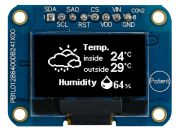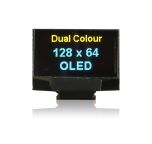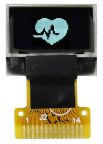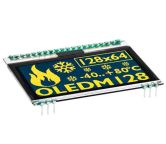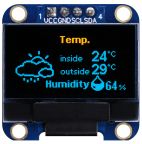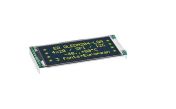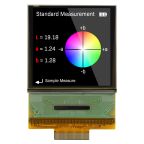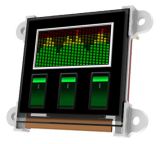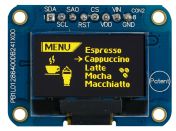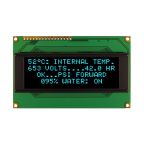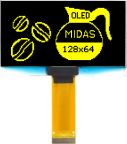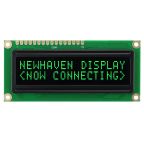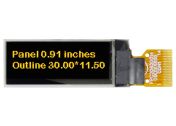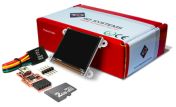OLED Displays
OLED displays are electronic visual displays based upon organic light-emitting diode (OLED) technology. Like other display types, an OLED Display can be used to present images, text and video a viewer.
What is an OLED?
An OLED is an organic light-emitting diode, that when current is applied emits light. An individual OLED is made up of an organic semiconductor, sandwiched between two electrodes. These electrodes is typically transparent, allowing the emitted light to escape.
How does an OLED Display work?
An OLED display is made up of an array of individual OLEDs that are individually turned on and off in a coordinated way (driven) to present an image. There are two main methods of driving an OLED display:
• PMOLED (passive matrix OLED) – Each row and line of pixels in the display are controlled sequentially, one at a time.
• AMOLED (active matrix OLED) – A thin-film transistor backplane is used to switch each pixel on and off, with each pixel containing a storage capacitor to maintain the on pixel state.
Advantages
High contrast ratio – OLEDs emit light directly, so when a black pixel is required, the pixel is off and emits no light at all. LCDs cannot achieve lower contrast ratios as black is achieved by masking a backlight, some light always get through
Wide viewing angle – Because OLEDs emit light directly and not through a liquid crystal layer like in a LCD
Response time – Current OLEDs can reach response times as low as 1 ms
Disadvantages
Lifespan – The organic materials used in the OLEDs have a limited lifespan compared to LCD displays
Outdoor performance – OLED Displays utilise an emissive technology, meaning all the light used to make up an image is produced by the display. As the constituent OLEDs can act like a mirror, in high ambient light condition the image can be difficult to view.
Power consumption – An OLED display will generally consume more power that an LCD display, unless the image is primarily black
Uses:
• PMOLED - Are typically used in small, graphical displays, where their benefits of a simple control scheme and low cost outweigh the disadvantages of restricted resolution and shorter lifespan.
• AMOLED - Are typically used in applications that require higher resolutions and are large in size.
Popular Searches
Related links
- LED Displays
- LCD Colour Displays
- 4D Systems 1.7in Passive matrix OLED Display Starter Kit 160 x 128pixels Matrix Serial Interface
- Midas Blue Red Passive matrix OLED Display 160 x 128pixels COG I2C SPI Interface
- Midas 0.66in White Passive matrix OLED Display 64 x 48pixels COB I2C Interface
- Midas 0.84in White Passive matrix OLED Display 96 x 16pixels COB I2C Interface
- Midas 0.66in White Passive matrix OLED Display 64 x 48pixels COT I2C SPI Interface
- Midas 2.3 Blue Red Passive matrix OLED Display 160 x 128 COG I2C SPI Interface
